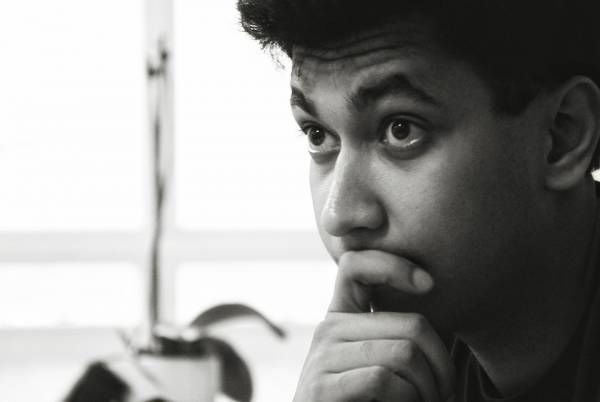The Fine Art of Gambling: Gut Feeling or Strategy?
Is gambling the thinking person’s game? It’s an undeniable fact that when it comes to decision-making, your first instinct is to trust your gut.
Whether it’s crossing a rickety bridge, signing a lease for a ridiculously expensive car or betting it all on black, your gut feeling often acts as a safety net to stop you from taking those unnecessary risks. But when it comes to gambling, is trusting your gut all it’s cracked up to be? Or is it simply holding you back?
Let’s take a closer look to find out.
Experience Isn't Everything
Well-known psychology writer Malcolm Gladwell came up with a theory that with 10,000 hours of deliberate practice in any field, a person can become an expert at anything. This suggests that those poker players who spend their weekends at the casinos or who play in online poker rooms into the early hours of the morning will become pros by simply grinding away.
However, a Princeton study has proven otherwise. Researchers looked into the effects of continued practice on improving skills and found some interesting results. They noted that for gaming of any kind, dedicated practice could only improve a person’s skills by 26%. So, assuming that you start as an absolute beginner level, plugging away at a game is only going to take you so far.
So, while experience (which may account for the reasoning behind their gut feelings) does count for something, you’re going to need a little more help to improve your skills.
The Benefits of Research
Now any seasoned gambler will tell you of numerous occasions when their instincts paid off by nudging them to place a bet or to fold. But these occasions are the exception rather than the rule as these old hands will also attest that becoming a skilled gambler requires two things: dedication and research.
Gamblers the world over spend hours on end dedicated to playing their chosen game, but this is not the only way that they hone their skills. Researching the game and following laid-out strategies pays off just as much if not more.
Gambling is a numbers game, and whether you’re betting on the horses, a football game or playing poker, it pays to do your homework. Now we’re not going to get bogged down in this with regards to sports. As a reader of Gambling911, you are probably well aware of the need for in-depth knowledge of the form of a player, team or horse. But what you may not realize is that researching a casino game can be just as if not more important.
Would you pick up a violin and expect to be able to play it without at least a rudimentary understanding of the instrument? Well, the same can be said for gambling, which brings us to our next point.
Skills Trump Luck
There was a time when the average person considered gambling to be a game of chance, and for the novice, this might still be the case. But with so much information on gambling so easily available from amazing gambling sites like ours (not so subtle brag), those who are new to gambling quickly learn that skills trump luck almost every time.
And so, these days, casinos are clued-in to the fact that many of their players want to learn how to play properly and remove those elements of luck and chance from their game as much as possible. This is particularly true of online players. So, you have detailed on-site tutorials and strategies from big hitters in the industry such as 888 Casino online operator.
Poker, not a game of luck.
For further proof of how gambling games such as poker are, in fact, skills-based games, we look to a study by Steven D. Levitt and Thomas J. Miller of the National Bureau of Economics. Their research found that highly skilled players would see an average return of 30% on their original investment while those of any other level of skill would average a -15% return. This pretty much blows the notion that gambling, and poker, in particular, is a luck-based industry.
How Focusing on One Game Pays Off
Now, while it might be tempting to spread your bets by engaging in more than one casino game, it’s actually better to focus on one. And given the evidence that we presented earlier on skills and research, it’s easy to see why.
Focusing all your energy and attention on one game (or sport when betting) allows you to become more in tune with the nuances of that game. In theory, this would allow you to make better judgments, and in truth, this is most likely why many players feel that they have that gut feeling.
Playing the thinking game pays off.
As you can see, “trusting your gut” is actually based on a combination of your experience, research and how you educated yourself in any particular field. So, in answer to the question we posed in our title, “gut feeling or strategy?”, the answer is both because instinct and strategic gambling are rooted in one thing only: research. Do your homework, and the fine art of gambling is yours to master.














